OUR KNOWLEDGR
“Healthy Nation”, A Dream!
Everybody will be proud to take part in this mission. A Life is a mixture of joy & sorrow. The joy we share with others but sorrow one has to bare. The illness is a sorrow, which is to be bared by oneself only. But if we learn health abnormalities before hand, we may avoid miserable illness. This is called “Prevention is better than cure.” Knowledge is the best prevention.
- ABOUT STRESS
- BACK PAIN
- DEPRESSION
- EXERCISE & PHYSICAL FITNESS
- HEART DISEASES
- HIGH BLOOD PRESSURE
- PREGNANCY
- SKIN CONDITION
- WEIGHT CONTROL
- MENOPAUSE
- CHOLESTEROL
- ERECTILE DYSFUNCTION
- SEXUAL HEALTH
- MENSTRUATION
- WOMEN’S HEALTH CHECKUP
- CHILD SAFETY
- CHILDHOOD IMMUNISATION
- CHILDREN’S HEALTH

ABOUT STRESS
Discover the 90/10 Principle. Author: Stephen Covey
It will change your life (at least the way you react to situations). What is this principle? 10% of life is made up of what happens to you. 90% of life is decided by how you react. What does this mean? We really have no control over 10% of what happens to us. We cannot stop the car from breaking down. The plane will be late arriving, which throws our whole schedule off. A driver may cut us off in traffic. We have no control over this 10%. The other 90% is different. You determine the other 90%. How? ……….By your reaction.
You cannot control a red light. But you can control your reaction. Don’t let people fool you; YOU can control how you react. Let’s use an example. You are eating breakfast with your family. Your daughter knocks over a cup of coffee onto your business shirt. You have no control over what just happened. What happens next will be determined by how you react. You curse.
You harshly scold your daughter for knocking the cup over. She breaks down in tears. After scolding her, you turn to your spouse and criticize her for placing the cup too close to the edge of the table. A short verbal battle follows. You storm upstairs and change your shirt. Back downstairs, you find your daughter has been too busy crying to finish breakfast and get ready for school. She misses the bus.
Your spouse must leave immediately for work. You rush to the car and drive your daughter to school. Because you are late, you drive 40 miles an hour in a 30 mph speed limit. After a 15-minute delay and throwing $60 traffic fine away, you arrive at school. Your daughter runs into the building without saying goodbye. After arriving at the office 20 minutes late, you find you forgot your briefcase. Your day has started terrible. As it continues, it seems to get worse and worse. You look forward to coming home. When you arrive home, you find small wedge in your relationship with your spouse and daughter.
Why? …. Because of how you reacted in the morning.
Why did you have a bad day?
A) Did the coffee cause it?
B) Did your daughter cause it?
C) Did the policeman cause it?
D) Did you cause it?
The answer is “D”. You had no control over what happened with the coffee. How you reacted in those 5 seconds is what caused your bad day.
Here is what could have and should have happened. Coffee splashes over you. Your daughter is about to cry. You gently say, “Its ok honey, you just need to be more careful next time”. Grabbing a towel you rush upstairs. After grabbing a new shirt and your briefcase, you come back down in time to look through the window and see your child getting on the bus. She turns and waves. You arrive 5 minutes early and cheerfully greet the staff. Your boss comments on how good the day you are having.
Notice the difference? Two different scenarios. Both started the same. Both ended different. Why?
Because of how you REACTED. You really do not have any control over 10% of what happens. The other 90% was determined by your reaction. Here are some ways to apply the 90/10 principle. If someone says something negative about you, don’t be a sponge. Let the attack roll off like water on glass. You don’t have to let the negative comment affect you!
React properly and it will not ruin your day. A wrong reaction could result in losing a friend, being fired, getting stressed out etc. How do you react if someone cuts you off in traffic? Do you lose your temper? Pound on the steering wheel? A friend of mine had the steering wheel fall off) Do you curse? Does your blood pressure skyrocket? Do you try and bump them?
WHO CARES if you arrive ten seconds later at work? Why let the cars ruin your drive? Remember the 90/10 principle, and do not worry about it. You are told you lost your job. Why lose sleep and get irritated? It will work out. Use your worrying energy and time into finding another job.
The plane is late; it is going to mangle your schedule for the day. Why take outpour frustration on the flight attendant? She has no control over what is going on. Use your time to study, get to know the other passenger. Why get stressed out? It will just make things worse. Now you know the 90-10 principle. Apply it and you will be amazed at the results. You will lose nothing if you try it. The 90-10 principle is incredible. Very few know and apply this principle.
The result ? Millions of people are suffering from undeserved stress, trials, problems and heartache. We all must understand and apply the 90/10 principle.
It CAN change your life!!! Enjoy…. Courtesy: Author: Stephen Covey DIABETES Diabetes is a disease in which your blood glucose, or blood sugar, levels are too high. Glucose comes from the foods you eat. Insulin is a hormone that helps the glucose get into your cells to give them energy. With type 1 diabetes, your body does not make insulin. With type 2 diabetes, the more common type, your body does not make or use insulin well. Without enough insulin, the glucose stays in your blood.
Over time, having too much glucose in your blood can cause serious problems. It can damage your eyes, kidneys, and nerves. Diabetes can also cause heart disease, stroke and even the need to remove a limb. Pregnant women can also get diabetes, called gestational diabetes. A blood test can show if you have diabetes. Exercise, weight control and sticking to your meal plan can help control your diabetes. You should also monitor your glucose level and take medicine if prescribed.
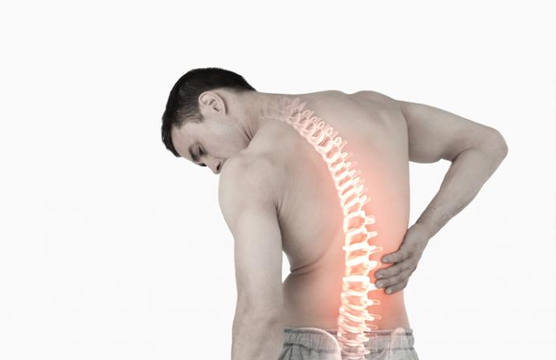
BACK PAIN
If you’ve ever groaned, “Oh, my aching back!”, you are not alone. Back pain is one of the most common medical problems, affecting 8 out of 10 people at some point during their lives. Back pain can range from a dull, constant ache to a sudden, sharp pain. Acute back pain comes on suddenly and usually lasts from a few days to a few weeks. Back pain is called chronic if it lasts for more than three months.Most back pain goes away on its own, though it may take awhile. Taking over-the-counter pain relievers and resting can help. However, staying in bed for more than 1 or 2 days can make it worse.
If your back pain is severe or doesn’t improve after three days, you should call your health care provider. You should also get medical attention if you have back pain following an injury.Treatment for back pain depends on what kind of pain you have, and what is causing it. It may include hot or cold packs, exercise, medicines, injections, complementary and alternative treatments, and sometimes surgery.
COPD (chronic obstructive pulmonary disease) COPD (chronic obstructive pulmonary disease) makes it hard for you to breathe. The two main types are chronic bronchitis and emphysema. The main cause of COPD is long-term exposure to substances that irritate and damage the lungs. This is usually cigarette smoke. Air pollution, chemical fumes, or dust can also cause it.
At first, COPD may cause no symptoms or only mild symptoms. As the disease gets worse, symptoms usually become more severe. They include
- A cough that produces a lot of mucus
- Shortness of breath, especially with physical activity
- Wheezing
- Chest tightness
Doctors use lung function tests, imaging tests, and blood tests to diagnose COPD. There is no cure. Treatments may relieve symptoms. They include medicines, oxygen therapy, surgery, or a lung transplant. Quitting smoking is the most important step you can take to treat COPD.

DEPRESSION
Depression is a serious medical illness that involves the brain. It’s more than just a feeling of being “down in the dumps” or “blue” for a few days. If you are one of the more than 20 million people in the United States who have depression, the feelings do not go away. They persist and interfere with your everyday life. Symptoms can include
- Sadness
- Loss of interest or pleasure in activities you used to enjoy
- Change in weight
- Difficulty sleeping or oversleeping
- Energy loss
- Feelings of worthlessness
- Thoughts of death or suicide
Depression is a disorder of the brain. There are a variety of causes, including genetic, environmental, psychological, and biochemical factors. Depression usually starts between the ages of 15 and 30, and is much more common in women. Women can also get postpartum depression after the birth of a baby. Some people get seasonal affective disorder in the winter. Depression is one part of bipolar disorder. There are effective treatments for depression, including antidepressants and talk therapy. Most people do best by using both.

EXERCISE & PHYSICAL FITNESS
Regular physical activity is one of the most important things you can do for your health. It can help
- Control your weight
- Lower your risk of heart disease
- Lower your risk for type 2 diabetes and metabolic syndrome
- Lower your risk of some cancers
- Strengthen your bones and muscles
- Improve your mental health and mood
- Improve your ability to do daily activities and prevent falls, if you’re an older adult
- Increase your chances of living longer
Fitting regular exercise into your daily schedule may seem difficult at first. But even ten minutes at a time is fine. The key is to find the right exercise for you. It should be fun and should match your abilities.
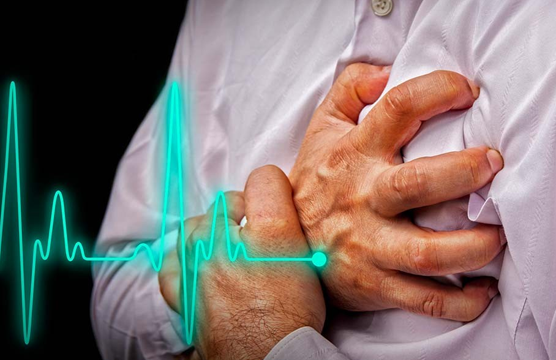
HEART DISEASES
If you’re like most people, you think that heart disease is a problem for others. But heart disease is the number one killer in the India. It is also a major cause of disability. There are many different forms of heart disease. The most common cause of heart disease is narrowing or blockage of the coronary arteries, the blood vessels that supply blood to the heart itself. This is called coronary artery disease and happens slowly over time. It’s the major reason people have heart attacks. Other kinds of heart problems may happen to the valves in the heart, or the heart may not pump well and cause heart failure. Some people are born with heart disease.
You can help reduce your risk of heart disease by taking steps to control factors that put you at greater risk:
- Control your blood pressure
- Lower your cholesterol
- Don’t smoke
- Get enough exercise
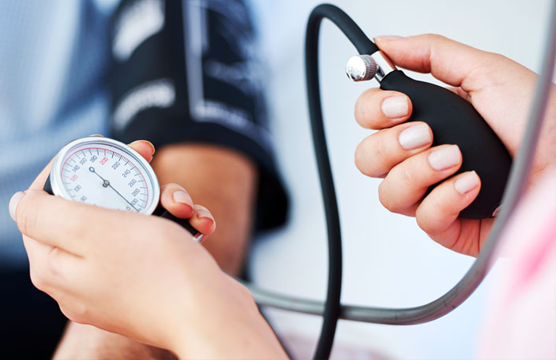
HIGH BLOOD PRESSURE
Blood pressure is the force of your blood pushing against the walls of your arteries. Each time your heart beats, it pumps blood into the arteries. Your blood pressure is highest when your heart beats, pumping the blood. This is called systolic pressure. When your heart is at rest, between beats, your blood pressure falls. This is called diastolic pressure.
Your blood pressure reading uses these two numbers. Usually the systolic number comes before or above the diastolic number. A reading of
- 119/79 or lower is normal blood pressure
- 140/90 or higher is high blood pressure
- Between 120 and 139 for the top number, or between 80 and 89 for the bottom number is called prehypertension. Prehypertension means you may end up with high blood pressure, unless you take steps to prevent it.
High blood pressure usually has no symptoms, but it can cause serious problems such as stroke, heart failure, heart attack and kidney failure.
You can control high blood pressure through healthy lifestyle habits and taking medicines, if needed.

PREGNANCY
So you’re going to have a baby! Whether you are pregnant or are planning to get pregnant, you will want to give your baby a healthy start. You need to have regular visits with your healthcare provider. These prenatal care visits are very important for your baby and yourself. Some things you might do when you are pregnant could hurt your baby, such as smoking or drinking. Some medicines can also be a problem, even ones that a doctor prescribed. You will need to drink plenty of fluids and eat a healthy diet. You may also be tired and need more rest.
Your body will change as your baby grows during the nine months of your pregnancy. Don’t hesitate to call your health care provider if you think you have a problem or something is bothering or worrying you.
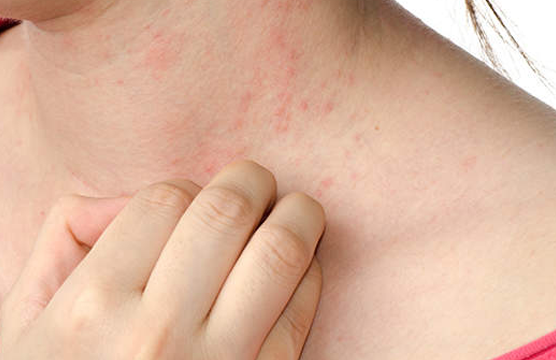
SKIN CONDITION
Your skin is your body’s largest organ. It covers and protects your body. Your skin
- Holds body fluids in, preventing dehydration
- Keeps harmful microbes out, preventing infections
- Helps you feel things like heat, cold, and pain
- Keeps your body temperature even
- Makes vitamin D when the sun shines on it
Anything that irritates, clogs, or inflames your skin can cause symptoms such as redness, swelling, burning, and itching. Allergies, irritants, your genetic makeup, and certain diseases and immune system problems can cause rashes, hives, and other skin conditions. Many skin problems, such as acne, also affect your appearance.

WEIGHT CONTROL
Keeping a healthy weight is crucial. If you are underweight, overweight, or obese, you may have a higher risk of certain health problems.
About two thirds of adults in the U.S. are overweight or obese. Achieving a healthy weight can help you control your cholesterol, blood pressure and blood sugar. It might also help you prevent weight-related diseases, such as heart disease, diabetes, arthritis and some cancers.
Eating too much or not being physically active enough will make you overweight. To maintain your weight, the calories you eat must equal the energy you burn. To lose weight, you must use more calories than you eat. A weight-control strategy might include
- Choosing low-fat, low-calorie foods
- Eating smaller portions
- Drinking water instead of sugary drinks
- Being physically active
Eating extra calories within a well-balanced diet can help to add weight.

MENOPAUSE
Menopause is the time in a woman’s life when her period stops. It usually occurs naturally, most often after age 45. Menopause happens because the woman’s ovaries stop producing the hormones estrogen and progesterone. A woman has reached menopause when she has not had a period for one year. Changes and symptoms can start several years earlier. They include
- A change in periods – shorter or longer, lighter or heavier, with more or less time in between
- Hot flashes and/or night sweats
- Trouble sleeping
- Vaginal dryness
- Mood swings
- Trouble focusing
- Less hair on head, more on face
Some symptoms require treatment. Talk to your doctor about how to best manage menopause. Make sure the doctor knows your medical history and your family medical history. This includes whether you are at risk for heart disease, osteoporosis, or breast cancer.
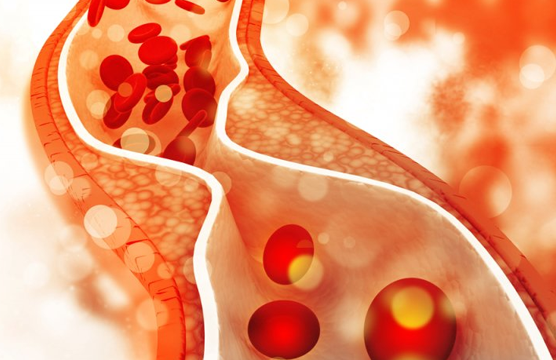
CHOLESTEROL
Cholesterol is a waxy, fat-like substance that occurs naturally in all parts of the body. Your body needs some cholesterol to work properly. But if you have too much in your blood, it can combine with other substances in the blood and stick to the walls of your arteries. This is called plaque. Plaque can narrow your arteries or even block them.
High levels of cholesterol in the blood can increase your risk of heart disease. Your cholesterol levels tend to rise as you get older. There are usually no signs or symptoms that you have high blood cholesterol, but it can be detected with a blood test. You are likely to have high cholesterol if members of your family have it, if you are overweight or if you eat a lot of fatty foods. You can lower your cholesterol by exercising more and eating more fruits and vegetables. You also may need to take medicine to lower your cholesterol.
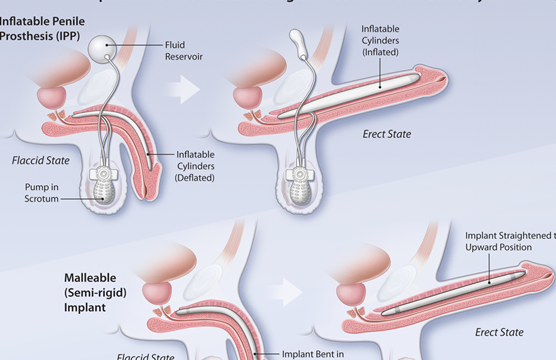
ERECTILE DYSFUNCTION
Erectile dysfunction (ED) is a common type of male sexual dysfunction. It is when a man has trouble getting or keeping an erection. ED becomes more common as you get older. But it’s not a natural part of aging. Some people have trouble speaking with their doctors about sex. But if you have ED, you should tell your doctor. ED can be a sign of health problems. It may mean your blood vessels are clogged. It may mean you have nerve damage from diabetes. If you don’t see your doctor, these problems will go untreated.
Your doctor can offer several new treatments for ED. For many men, the answer is as simple as taking a pill. Getting more exercise, losing weight, or stopping smoking may also help.

SEXUAL HEALTH
Sexuality is a big part of being human. Love, affection and sexual intimacy all play a role in healthy relationships. They also contribute to your sense of well-being. A number of disorders can affect the ability to have or enjoy sex in both men and women.
Factors that can affect sexual health include
- Fear of unplanned pregnancy
- Concerns about infertility
- Sexually transmitted diseases
- Chronic diseases such as cancer or heart disease
- Medicines that affect sexual desire or performance
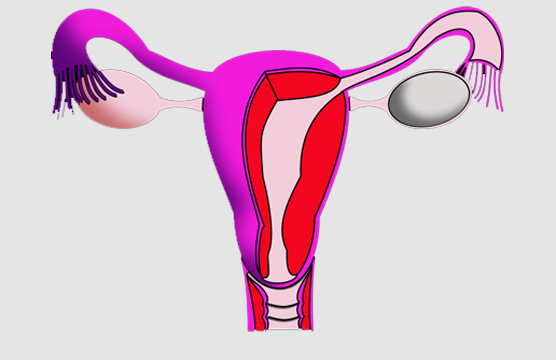
MENSTRUATION
Menstruation, or period, is normal vaginal bleeding that occurs as part of a woman’s monthly cycle. Every month, your body prepares for pregnancy. If no pregnancy occurs, the uterus, or womb, sheds its lining. The menstrual blood is partly blood and partly tissue from inside the uterus. It passes out of the body through the vagina.
Periods usually start between age 11 and 14 and continue until menopause at about age 51. They usually last from three to five days. Besides bleeding from the vagina, you may have
- Abdominal or pelvic cramping
- Lower back pain
- Bloating and sore breasts
- Food cravings
- Mood swings and irritability
- Headache and fatigue
Premenstrual syndrome, or PMS, is a group of symptoms that start before the period. It can include emotional and physical symptoms. Consult your health care provider if you have big changes in your cycle. They may be signs of other problems that should be treated.
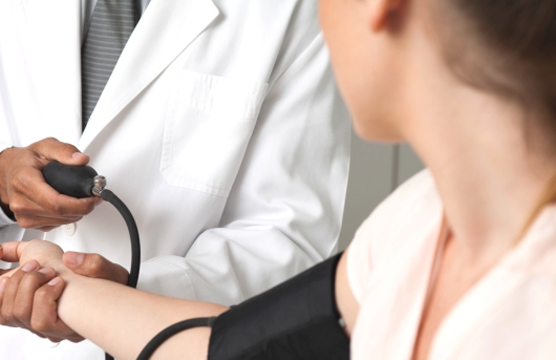
WOMEN’S HEALTH CHECKUP
Regular health exams and tests can help find problems before they start. They also can help find problems early, when your chances for treatment are better. As a woman, you need some special exams and screenings. During your checkup, your health care provider will usually do:
- A pelvic exam – an exam to check if internal female organs are normal by feeling their shape and size.
- A Pap test – a test to check for cancer of the cervix, the opening to a woman’s uterus. Cells from the cervix are prepared so they can be seen under a microscope.
- A clinical breast exam – to check for breast cancer by feeling and looking at your breasts.
- Your health care provider may also recommend other tests, including a mammogram or a test for HPV.
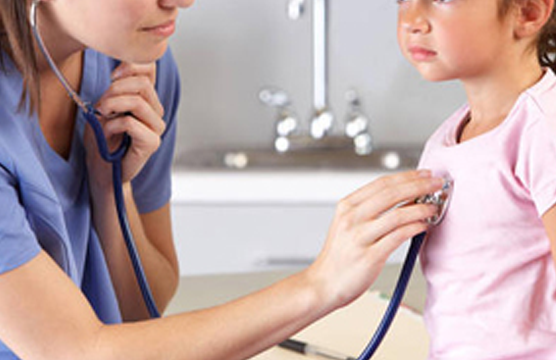
CHILD SAFETY
As parents, we want to keep our children safe from harm. Take steps to keep your children safe:
- Install the right child safety seat in your car
- Teach children how to cross the street safely
- Make sure they wear the right gear and equipment for sports
- Install and test smoke alarms
- Store medicines, cleaners and other dangerous substances in locked cabinets
- Babyproof your home
- Don’t leave small children unattended
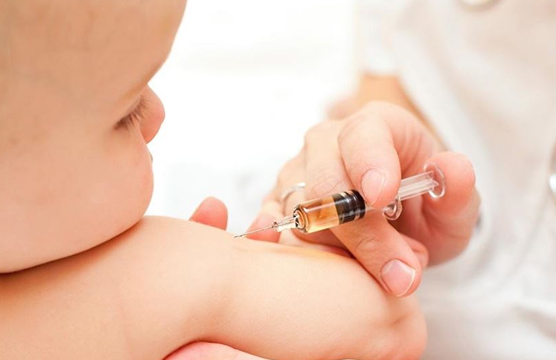
CHILDHOOD IMMUNISATION
Today, children in the United States routinely get vaccines that protect them from more than a dozen diseases such as measles, polio, and tetanus. Most of these diseases are now at their lowest levels in history, thanks to years of immunization. Children must get at least some vaccines before they may attend school. Vaccines help make you immune to serious diseases without getting sick first. Without a vaccine, you must actually get a disease in order to become immune to the germ that causes it. Vaccines work best when they are given at certain ages. For example, children don’t receive measles vaccine until they are at least one year old. If it is given earlier it might not work as well. The Centers for Disease Control and Prevention publishes a schedule for childhood vaccines. Although some of the vaccines you receive as a child provide protection for many years, adults need immunizations too.

CHILDREN’S HEALTH
Your child’s health includes physical, mental and social well-being. Most parents know the basics of keeping children healthy, like offering them healthy foods, making sure they get enough sleep and exercise and insuring their safety. It is also important for children to get regular checkups with their health care provider. These visits are a chance to check your child’s development. They are also a good time to catch or prevent problems.
Other than checkups, school-age children should be seen for
- Significant weight gain or loss
- Sleep problems or change in behavior
- Fever higher than 102
- Rashes or skin infections
- Frequent sore throats
- Breathing problems
